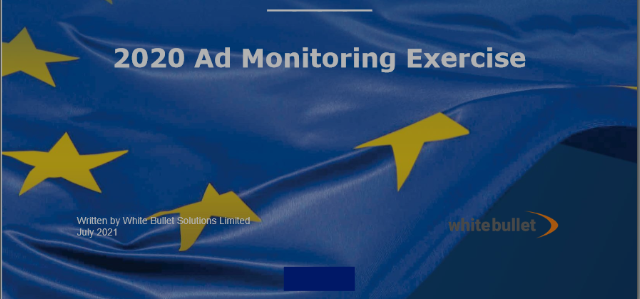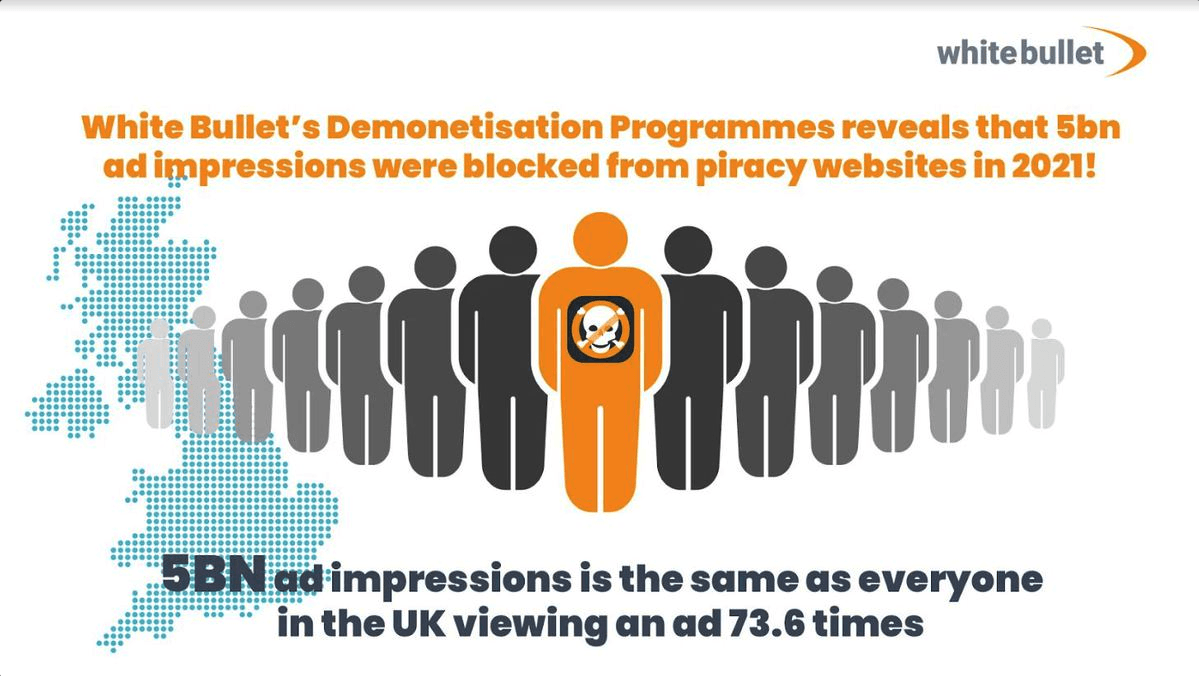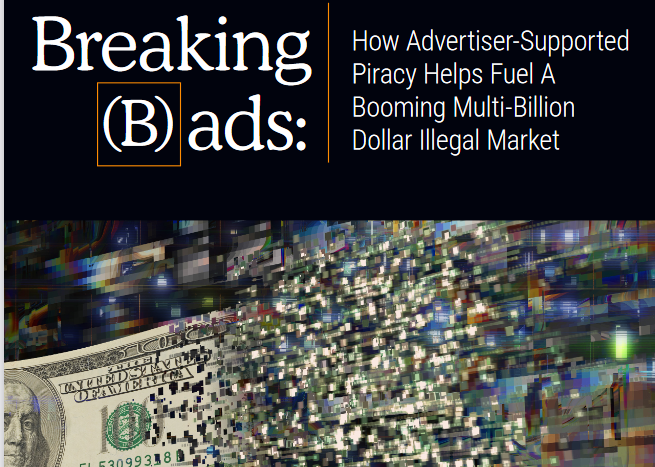Contrary to the popular saying, crime does sometimes pay.
Based on our own research, the top pirate web domains – the ones people turn to when they don’t want to pay to watch the football, the boxing, the new Hollywood film – earn around $7 million in ad revenue annually.
So there’s money in crime, but that doesn’t mean crime is necessarily easy. Just like legitimate operators, pirates have a business to run, and it’s clear they are committed to their work. They hook their sites up to programmatic ad channels to generate revenue. They promote their product through search and social media – building a brand, acquiring an audience. Some even sell subscriptions.
Then there is the more technical side: they develop apps, create mirror sites to evade blocking orders, and constantly obscure and relaunch their activities to stay ahead of the authorities.
In other words, give or take a few wrong-side-of-the-law contingencies, pirates have a lot of the same operational challenges as legal broadcasters, and many of the same tools at their disposal to market and monetise their channels. You might almost admire their style.
But the glaring difference between the legitimate broadcasters and the illegal streaming companies is that the outlaws don’t pay a penny for the content they distribute. That’s a big item off the balance sheet, and it’s the reason why they thrive, and why their success does so much harm. When you are stealing and re-selling someone else’s product, fees, royalties and regulation don’t mean a great deal to you.
Given the popularity of illegal streaming, it’s tempting to conclude that those things don’t mean a great deal to many viewers either. What could we possibly steal from the billionaire football clubs, the multi-millionaire promoters and the broadcasting conglomerates that they couldn’t afford to lose?
But the fact is, IP doesn’t only benefit the rich. It bankrolls the creation of all sport, all art, and pays both big salaries and small ones. The criminal operators who siphon off their own ill-gotten share of the proceeds may look like Robin Hood figures, liberating content from the hands of those who would charge for it, but they owe their entire existence to the legitimate channels whose content they are hijacking.
It’s World Intellectual Property Day today (April 26), shining an annual light on the role intellectual property plays in the global economy and the work it does in protecting the interests of customers, culture, SMEs – even the environment and indigenous communities. If nothing else, it offers a reminder of how broad the benefits of IP actually are.
Perhaps it’s too much to expect a fan streaming a Champions League match to think very hard about the economy such activities disrupt at all levels. But like the recent European Super League proposal so many fans hated, this kind of IP infringement reduces the amount of money that trickles down through sport to smaller teams and grass-roots initiatives. And like the football agents of whom so many disapprove, it drains enormous sums from the game without conspicuously putting anything in.
And that’s just football. The unfortunate fact is, all industries show a similar pattern of revenue disruption when pirates get their claws in.
As a company that devotes huge time and expertise to tracking and monitoring the ever-shifting sprawl of copyright-infringing content on the internet, we get to see it for what it is: a systematic criminal enterprise that leeches vast, quantifiable sums from IP owners all over the world, and the industries, wages and ongoing innovations that depend on them. The fact that these pirates are organised, even professional, shouldn’t obscure their negative impact.
So, on behalf of rights owners, authorities and right-thinking companies in the ad chain, we continue to work to attack the basis of their business, de-indexing pirates from search engines, demonetising them by cutting off their ad supply. And because we survey the entire landscape, we can do much of this in real time, cutting the revenue lines and marketing channels on which they depend, often within hours of detecting illegal activity.
Crime pays, but it does so with money that, in the proper hands, could have done a lot of good. We might never entirely stop it, but we can all stop supporting it, and some of us will keep on doing our best to fight it.
Get started with IPIP
Collect all your data for unified prevention, detection, and response to digital piracy.
White Bullet has helped over 3,000 brands to avoid funding digital piracy.
With over a billion dollars of ad spend funding IP infringement in 2020, it's time to work with us to stop pirates from using advertising to profit from distributing intellectual property.











